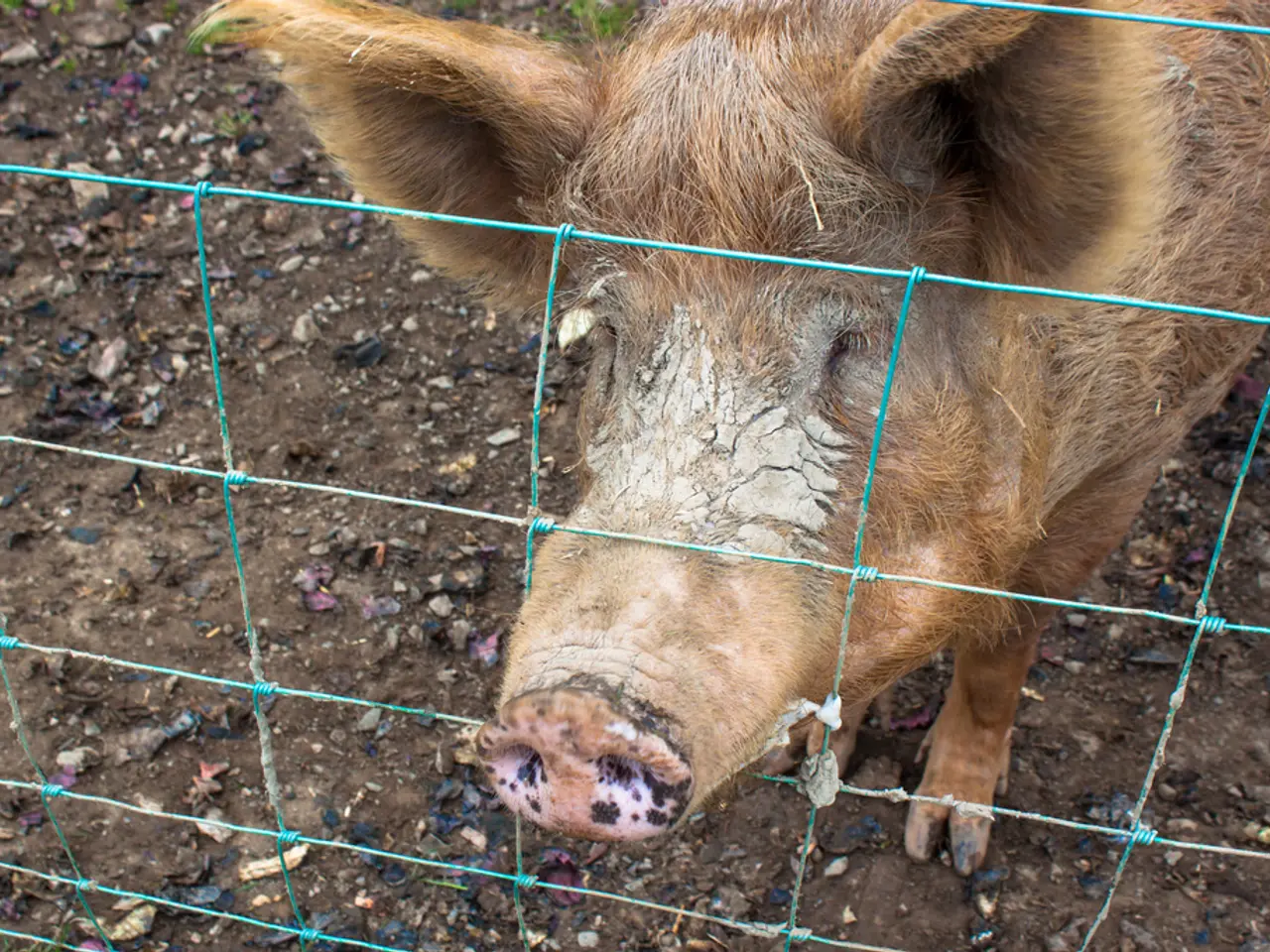Outbreak of swine fever in North Rhine-Westphalia: Nearly 80 instances, all confined to the restricted area
In North Rhine-Westphalia, Germany, efforts to control the African Swine Fever (ASF) outbreak are underway, with protective fences and containment zones playing a crucial role in restricting wild boar movement and limiting the spread of the virus.
The affected districts have established protective fencing in areas with wild boar populations to block natural migration routes and reduce virus transmission among wild populations. Alongside this, restricted zones have been set up around outbreak sites, enforcing movement bans, increased inspections, and trade limitations for farms within these areas. These zones conform with EU regulations and help limit contacts that could spread ASF further.
In the district of Warendorf, which houses around 850,000 pigs, emergency response measures are being practiced, including the establishment of wash stations to prevent the spread of the virus. The construction of protective fences in the affected districts is almost complete, with only some remaining work left.
Volunteers from the Technical Relief Agency (THW) are conducting decontamination exercises in the district of Warendorf, where infected animals have been found within the containment zone II. Vehicles are reportedly sprayed with disinfectant solutions, similar to a car wash, in an effort to eliminate the virus.
Some kilometers of ASF protective fence have been erected in neighboring districts as a precaution, while in the districts of Olpe and Siegen, 45 and 25 kilometers of protective fence have been built, respectively. Neighboring states like Hesse have also taken measures, authorizing permanent and mobile electric fences along border roads with North Rhine-Westphalia to control wild boar crossing and potential ASF spread.
Restrictions are in place in the containment zones, including requests for citizens not to leave designated paths and for dogs not to be allowed to run free. These measures aim to contain the outbreak geographically and prevent the disease from reaching domestic pig herds and neighboring regions.
It is worth noting that the virus causing ASF is harmless to all other animals and humans. However, the disease has resulted in the death of 78 wild boars in North Rhine-Westphalia. Teams with trained dogs and drones conduct intensive searches for dead wild boars to promptly remove infectious carcasses, supplemented by mobile decontamination stations in high-risk districts.
These protective fences and containment zones function as physical and regulatory barriers that support early detection efforts, reduce wildlife-hosted transmission, and minimize the risk of ASF outbreaks spreading into domestic pig populations and across regional borders, helping to stabilize the situation in this densely populated and economically important area.
In the context of health-and-wellness and environmental science, the protective fences and restricted zones set up in North Rhine-Westphalia, Germany, are elements of science application aimed at controlling the spread of African Swine Fever, an effort that extends to wildlife, domestic pig populations, and neighboring regions. Moreover, in the realm of medical-conditions, it's crucial to highlight that the virus causing ASF poses no threat to humans or other animals, apart from wild boars in this instance.




